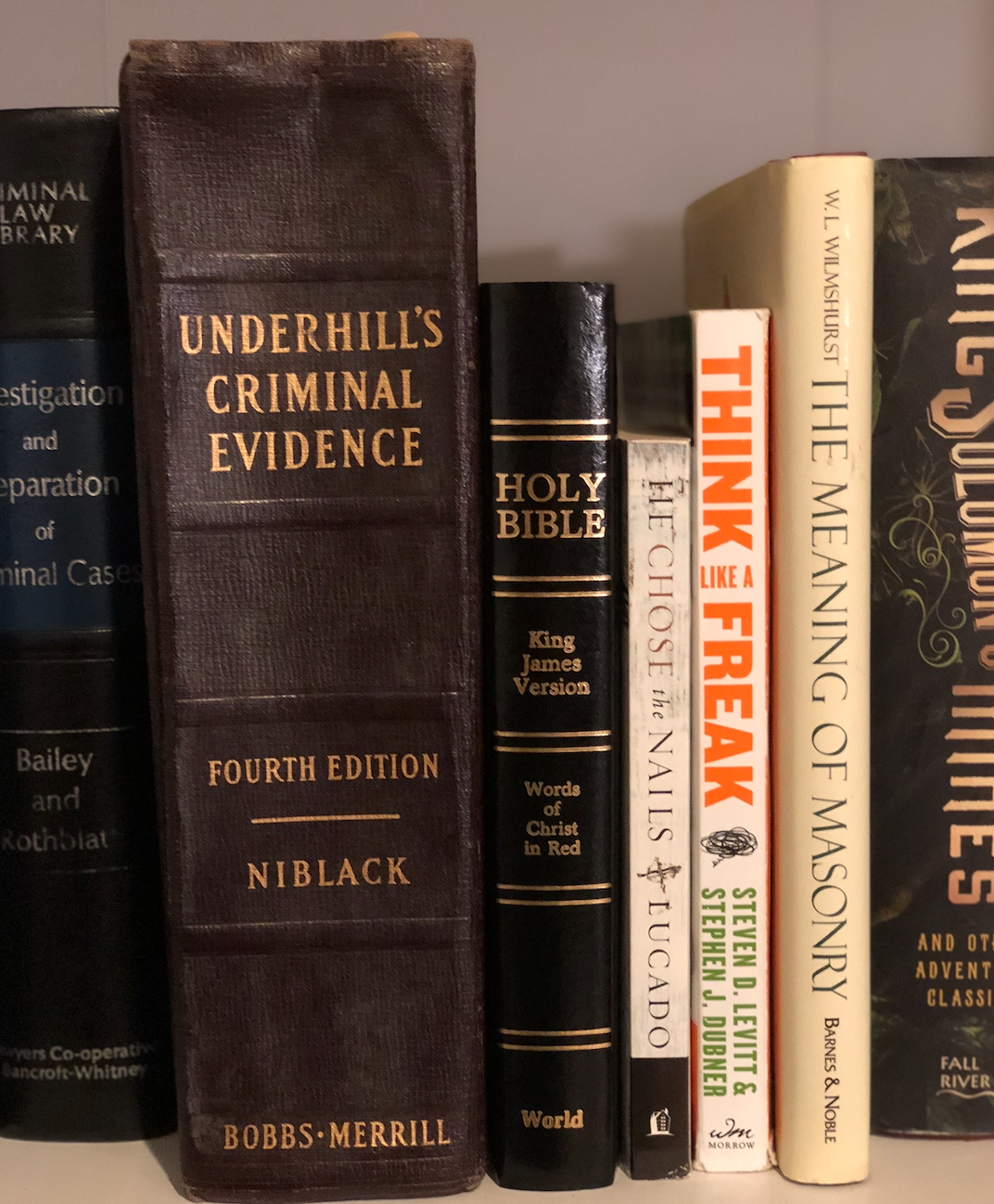Why is it major events, places, or points in history have such an array of narratives questioning the legitimacy of origin, details, or purpose? And why is it these other theories nearly always involve negative, malicious, or intentionally nefarious opposition? I guess that’s why they’re called conspiracy theories. Here’s just a few that come to mind.
The assassinations of JFK and Martin Luther King Jr.; Area 51, Roswell, and UFOs in general; Bigfoot and the Loch Ness monster; the death or disappearance of people like Jimmy Hoffa, Amelia Earhart, and Elvis Presley; Cheyenne Mountain, a ‘mind-controlling’ Alaska research facility, and the Denver Airport; even some natural disasters like the tornado in Joplin, Missouri have conspiracies surrounding them. Other popular subjects include Freemasonry, crop circles, secret societies, document markings, and Mount Rushmore.
Recently, election interference and virtually everything surrounding COVID-19 have generated rife theories of conspiracy or malfeasance. Conspiracies make for great entertainment, but can also cause great divisiveness. Still, there is something to be said for not just believing everything we hear. One might even think healthy skepticism and respectful questioning of the status quo are forms of checks and balances. After all, the founding fathers baked it into the United States Constitution; governments around the world succeed because if it; and successful businesses prosper when it’s done right.
But wouldn’t it be nice if people spent more time, energy, and effort in the chatrooms and social media underworld concocting equally outlandish theories that change the world in a positive way?
I don’t like admitting this, but lately I’ve become increasingly cynical; skeptical of motives and critical of decisions. Quite frankly it’s made me a little edgy, and I don’t like it. Maybe it’s increased workload, isolation and separation, stress and uncertainty of the pandemic, doubts about its handling, or a multitude of things compounding into a perfect storm of flapdoodle. Regardless, I clearly need to pray more and dwell on a few ‘conspiracies of good’ for a while.
Let me share a few positive affirmations and plot a way to extricate myself from this funk. Co-conspirators are welcome.
“God may not always keep us out of hard places, but he is always with us. A hard place with him is better than an easy place without him.” (David Jeremiah)
“It is good for me to have been afflicted, that I might know how to speak a word in season to one who is weary.” (Charles Spurgeon)
“Endurance is the fortitude to carry on in the face of extreme difficulty.” (Don Denyes)
“There is no pit so deep that God’s love is not deeper still.” (Corrie ten Boom)
“Let us not become weary in doing good, for at the proper time we will reap a harvest if we do not give up.” (Galatians 6.9)
“Whatever is true, whatever is noble, whatever is right, whatever is pure, whatever is lovely, whatever is admirable…think on these things.” (Philippians 4.8)
Maybe conspiracy theories do more harm than good, or perhaps they really do help maintain proper balance in the world. Either way, it can take years for the truth to be revealed…and even then there will be those who doubt.
Consider that besides the official record of the Warren Commission, a senior research scientist using the latest technologies corroborated it by determining Lee Harvey Oswald did, in fact, shoot President Kennedy from behind, and from a sixth-floor window of the Texas School Book Depository. Yet conspiracies like the grassy knoll still exist and will likely always surround the 1963 assassination of JFK.
Likewise, when Pontius Pilate’s name was found inscribed on a stone tablet unearthed in Caesarea late 1960s, it should have silenced theories that he never existed and thus could not have sentenced a man named Jesus to die on a cross. More evidence was discovered when recent breakthroughs in cleaning and image rendering also revealed Pilate’s name on a ring found at Herodium. Despite these historical discoveries, doubt, unbelief, and other theories will continue to question the existence of both men until the day all is made known.
Blessed are those who have not seen and yet have believed.

Do you ever feel that life is conspiring against you as some cosmic joke or social experiment to rid you of your hope or positivity? Maybe, like most conspiracy theories’ effect on the original issue, I’m overcomplicating this. After all, Levitt and Dubner wrote in their book Think Like a Freak, “It’s easy to get seduced by complexity; but there is virtue in simplicity too.”
Will you be my accomplice in the simply virtuous mission of conspiring for good?
Get Strong. Be Strong. Stay Strong.
Levitt, S. D., & Dubner, S. J. (2014). Think like a freak. New York, NY: HarperCollins.


4 thoughts on “Conspiring for Good”
Comments are closed.